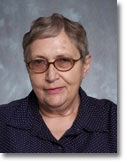Marquette Moot Court Team Success at the NMCC
I had the privilege of working with two outstanding National Moot Court Competition (NMCC) teams again this year. The Region VIII round of the NMCC was hosted by Marquette this weekend.
Please congratulate team members Joseph Birdsall, Nicole Cameli, and Patrick Ritter, who advanced to the semifinal round of competition (top four teams out of 18). The team additionally received the second highest brief score at the competition. Attorneys Emily Lonergan and Jason Luczak coached the team.
Please also congratulate team members Steven Miracle, Megan Mooney, and Ariane Strombom for their performance at the competition. The team advanced to the quarterfinals (top eight teams). Attorneys Jesse Blocher and Michael Cerjak coached the team.
The NMCC is sponsored by the New York City Bar and the American College of Trial Lawyers. Over 150 law schools compete across the country.
I am grateful for our teams’ hard work; they put in many hours of practice to prepare for the competition. I am also grateful for the time donated by the Marquette Moot Court Association and many judges and lawyers who judged the briefs and oral arguments for our NMCC regionals. Finally, thank you to the individuals who judged the teams’ numerous practice rounds.

